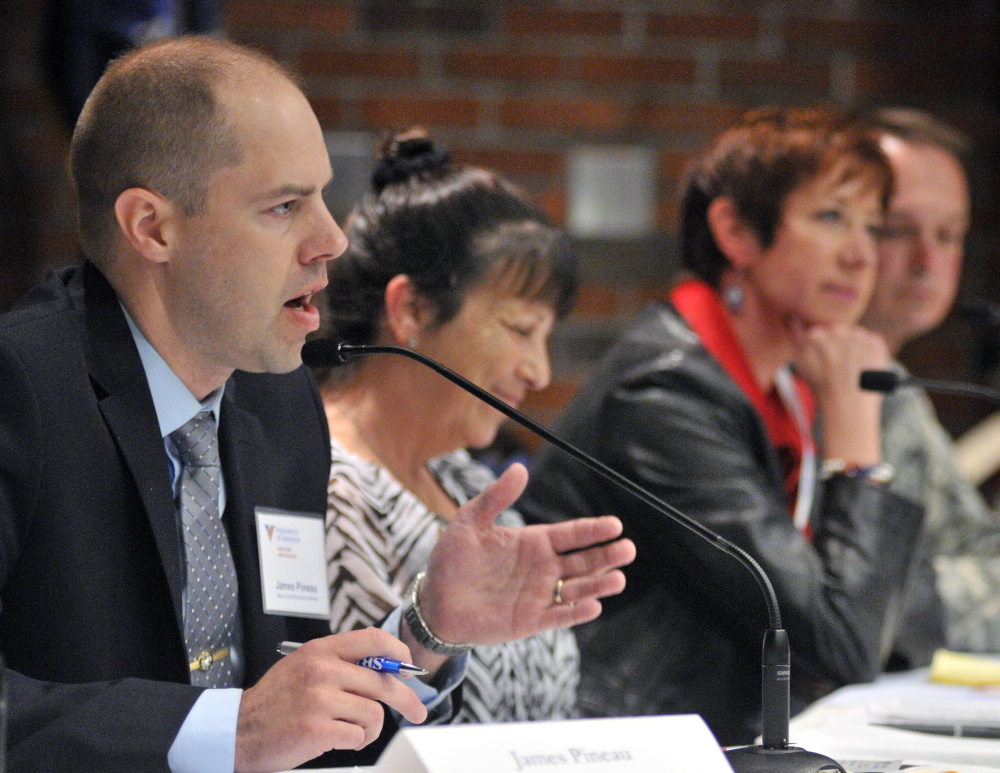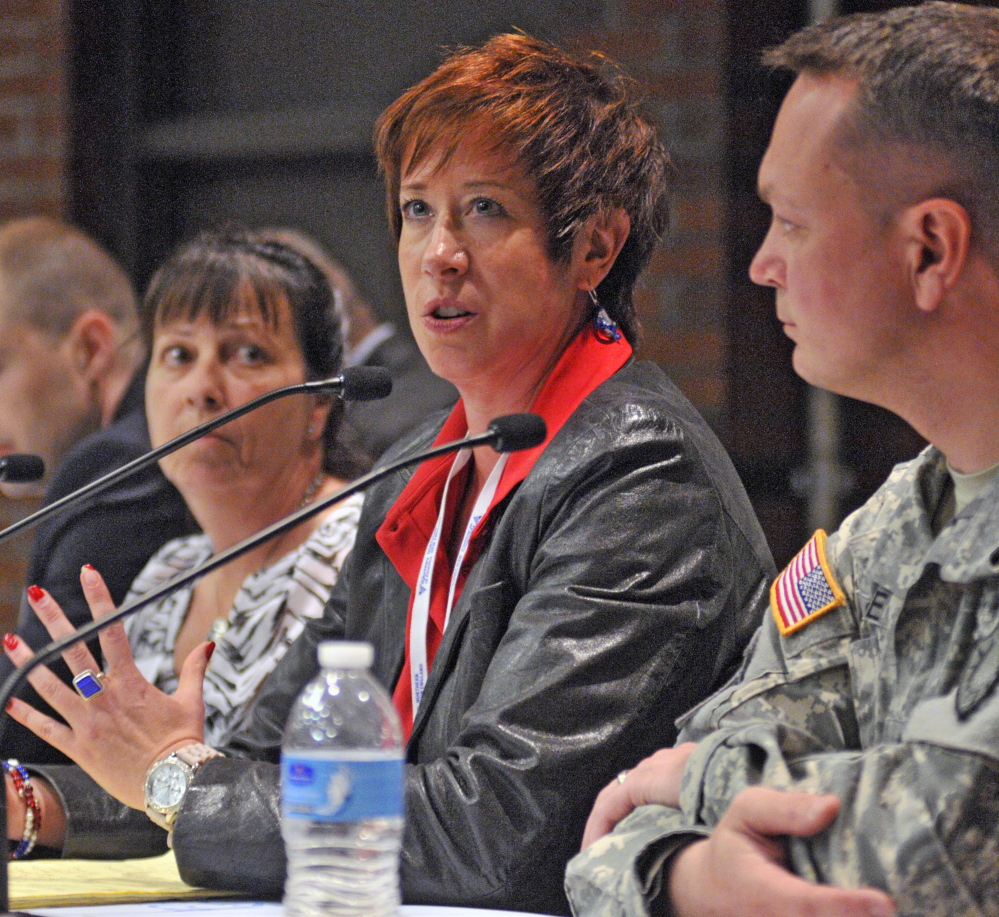AUGUSTA — Maine has demographic and economic challenges that make it difficult for veterans to work after returning home, but connecting them to existing services and employers is also a major problem, a panel said on Tuesday.
Maine has 129,000 veterans — the third-highest per capita population of veterans among states — according to a paper released at the event by the Maine Center for Economic Policy, a left-leaning group. Two-thirds of them are over age 55 and only 23 percent of Maine veterans over age 25 have bachelor’s degrees, compared to 26 percent nationwide.
The Tuesday event at the University of Maine at Augusta was run by the nonprofit Volunteers of America.
Sgt. 1st Class Nathaniel Grace, community liaison at the Maine Army National Guard, said the three top issues identified by veterans in a recent Guard survey were employment, housing and transportation, which he called “intertwined needs.”
Many state and federal agencies and nonprofit organizations provide veterans with employment and educational assistance, but it’s difficult for veterans to know where to get help, panelists said, and they called for agencies to take a collaborative approach to solve that problem.
“We don’t need more agencies in a lot of areas,” said Steve Wallace, the CEO of the Auburn-Lewiston YMCA and chairman of a veteran-specific committee for the Maine State Workforce Investment Board. “What we do need is better communications about the services that are there.”
Small businesses drive Maine’s economy, representing 97 percent of employers and nearly 59 percent of the private labor force in 2010, according to the U.S. Small Business Administration. Panelists called for a concerted effort to identify small businesses that want to hire veterans with specific skill sets. Grace said government has a large role in this, but he called on employers to “raise the issue” publicly, whether it’s in public service announcements or other marketing efforts.
“I think that’s a key way to get it done,” he said.
The center’s report made five suggestions to improve Maine veteran services, including expanding Medicaid coverage under the Affordable Care Act, increasing food stamp benefits, expanding education aid and tax incentive programs and improving the Maine Bureau of Veterans Services website, which doesn’t mention Maine’s 1985 law establishing a veteran hiring preference for state jobs.
But Eliza Quill, veterans case manager at Bread of Life, a nonprofit group that operates a veterans homeless shelter in Augusta, said a lack of public transportation, especially in the capital area, is a main concern of hers. The Kennebec Explorer runs a bus service in the area, but it doesn’t run in many places past 4 p.m.
Most of the shelter’s residents are in their 50s and 60s, and Quill said of the 10 people there, seven don’t know how to turn on a computer and haven’t used them. It’s often difficult for veterans to get to potential jobs, career services and health appointments, and the shelter could benefit from groups coming in to provide services, such as computer lessons.
“I think that we need to have more community involvement in the lives of veterans,” Quill said. “That’s what we need.”
Send questions/comments to the editors.



